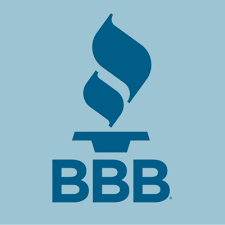 Chris Holman speaks with Melanie Duquesnel President & CEO, Better Business Bureau of Eastern Michigan about cracking the Invulnerability Illusion: Stereotypes, Optimism Bias, and the Way Forward for Marketplace Scam Education.
Chris Holman speaks with Melanie Duquesnel President & CEO, Better Business Bureau of Eastern Michigan about cracking the Invulnerability Illusion: Stereotypes, Optimism Bias, and the Way Forward for Marketplace Scam Education.
We’ve bought into stereotypes about scam victims – they’re usually seen as vulnerable and elderly or gullible and poorly educated. BBB’s new study confirms that these stereotypes are strongly held… and that they are wrong. New research offers powerful evidence that we are all at risk, with younger and more educated individuals being the most likely to be scammed. Armed with this information, BBB is calling for a new direction for how we approach the problem of fraud.
BBB’s research has uncovered the 5 Myths about Scams that everyone, including business owners and their employees, should be aware of.
Myth #1: Scammers are easy to spot
In reality, scammers work to gain your trust. They are patient, master manipulators and chameleons. They change their names and pose as sources you trust. They are not just the one call close. Some scams can go on for over a year for them to score the big money. On top of their ability to take on different personalities, the internet makes it easy and profitable to operate undetected.
Myth #2: This is someone else’s problem
Truth be told, we are all at risk. 69% of victims are under age 45; so it’s not lonely ol’ granny waiting by the phone to talk to anyone who will call. Also, 78% of victims hold a college or graduate degree. Sheer educational prowess does not prevent being scammed.
Myth #3: Scams have little economic impact
The losses resulting from being scammed are staggering. Nearly 1 in 5 individuals lose money to a scam each year. The estimated annual losses (of those who report being scammed) total over $50 Billion. That negative economic impact is a significant blow to the business community.
Myth #4: I can’t protect myself
You can protect yourself, and your business, but it takes effort. 60% of those who lost money to a scam agree that techniques used and being familiar with the scam were contributing factors. Seeking out information through organizations like Better Business Bureau, will keep you up to date with what the marketplace is experiencing. 80% of the respondents said knowing about a particular scam helped them avoid an attempt or loss of hard-earned money.
Myth #5: No point in reporting a scam
It absolutely makes a difference! Scam targets and victims who speak up are heroes because they educate others. On BBB Scam Tracker, 49% of people who report say they do not expect to get their money back or to see justice for the fraud they experienced, but they want to help others avoid similar scams. BBB’s Scam Tracker is the #1 place to report scams.
By every available measure, marketplace scam victimization has reached epidemic levels with no signs of abating. The Federal Trade Commission (FTC) estimates that there were nearly 40 million incidents of fraud in 2011. This figure puts the risk of fraud victimization at more than four times greater than the risk of violent crime, burglary, larceny, and motor vehicle them combined (FBI, 2014). Knowing the red flags and educating your employees, family and friends can prevent them all from falling prey to scams. Investing your time into such efforts is certainly worth it. Be safe. Be aware. Be vigilant. You are your best defense.
For more knowledge, news, and insights visit:
www.michiganbusinessnetwork.com













